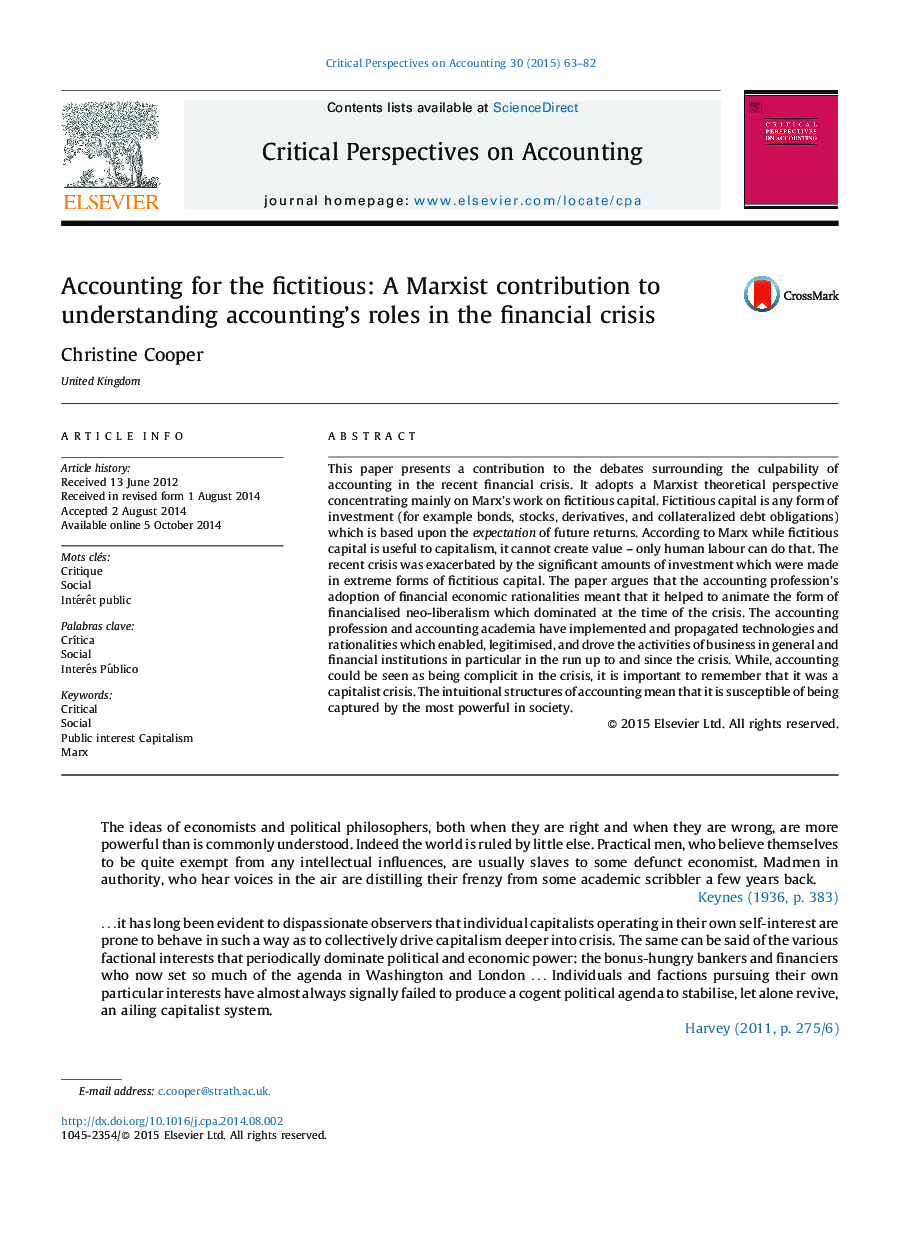| Article ID | Journal | Published Year | Pages | File Type |
|---|---|---|---|---|
| 999918 | Critical Perspectives on Accounting | 2015 | 20 Pages |
This paper presents a contribution to the debates surrounding the culpability of accounting in the recent financial crisis. It adopts a Marxist theoretical perspective concentrating mainly on Marx's work on fictitious capital. Fictitious capital is any form of investment (for example bonds, stocks, derivatives, and collateralized debt obligations) which is based upon the expectation of future returns. According to Marx while fictitious capital is useful to capitalism, it cannot create value – only human labour can do that. The recent crisis was exacerbated by the significant amounts of investment which were made in extreme forms of fictitious capital. The paper argues that the accounting profession's adoption of financial economic rationalities meant that it helped to animate the form of financialised neo-liberalism which dominated at the time of the crisis. The accounting profession and accounting academia have implemented and propagated technologies and rationalities which enabled, legitimised, and drove the activities of business in general and financial institutions in particular in the run up to and since the crisis. While, accounting could be seen as being complicit in the crisis, it is important to remember that it was a capitalist crisis. The intuitional structures of accounting mean that it is susceptible of being captured by the most powerful in society.
